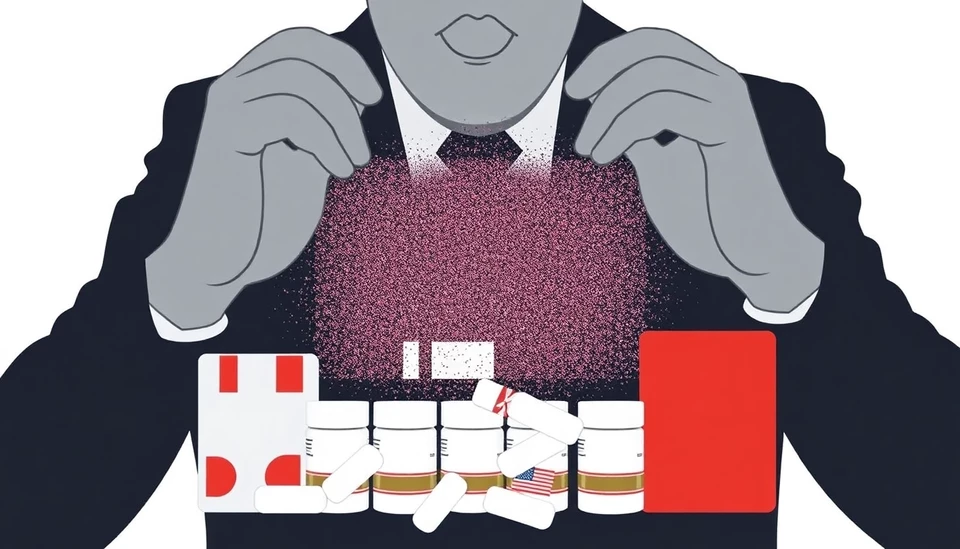
In a significant and controversial move, former President Donald Trump has announced a new set of tariffs that target the pharmaceutical industry, stirring up a mix of unease and criticism from various stakeholders. This decision, which some argue could lead to major disruptions in the supply chain for essential medications, has implications that extend well beyond corporate balance sheets and could affect patients nationwide.
The newly proposed tariffs, which are positioned as a way to bolster domestic manufacturing and reduce reliance on foreign suppliers, are projected to impact over $10 billion worth of pharmaceutical products. Industry leaders warn that these tariffs could lead to skyrocketing drug prices, reduced access to medications, and potential shortages of critical therapies that countless Americans depend on.
Pharmaceutical companies have swiftly responded to the announcement, indicating that the additional financial burden imposed by the tariffs could compel them to rethink their pricing strategies. Multiple executives have expressed concerns that the implementation of the tariffs might lead to decreased investments in research and development, further stifling innovation within the industry.
Moreover, critics of the tariffs highlight the potential ripple effects on consumers, particularly those who already struggle to afford necessary medications. With the pharmaceutical sector often operating on thin margins, the added costs from tariffs could lead to steep increases in drug prices, which could disproportionately affect low-income populations and those with chronic health conditions.
Healthcare advocates and economic analysts alike are voicing alarm over the potential long-term ramifications of these tariffs. They argue that the bold policy could disrupt the delicate balance of the American healthcare system, wherein affordability and availability of medications are paramount. The fear is that essential drugs may either disappear from the market entirely or become financially inaccessible for many patients.
As the pharmaceutical industry braces for the impending changes, there's extensive debate about the need for such drastic measures. Proponents of the tariffs claim that they are necessary for protecting American jobs and ensuring that the U.S. remains competitive globally. However, opponents assert that the approach is misguided and could lead to unintended consequences that undermine the very goals it seeks to achieve.
Given the gravity of the situation, lawmakers and policy experts are urging a comprehensive review of the potential impacts of these tariffs. They advocate for policies that focus on lowering drug costs through alternative means, such as encouraging competition and fostering transparency in drug pricing, rather than resorting to levies that could cause more harm than good.
With further discussions and negotiations likely in the coming weeks, stakeholders from all corners of the healthcare landscape are preparing for a heated debate on the merits and drawbacks of these tariffs on the pharmaceutical industry. As the situation continues to unfold, patients and healthcare providers alike will be watching closely to gauge the true impact of this bold policy maneuver.
As the nation grapples with the consequences of these tariffs, one thing remains clear: the future of the pharmaceutical industry hangs in the balance, and the stakes could not be higher for millions of Americans relying on affordable and accessible healthcare.
#TrumpTariffs #PharmaceuticalIndustry #DrugPrices #HealthcareAccess #EconomicImpact #PatientCare #USHealthcare
Author: Victoria Adams




